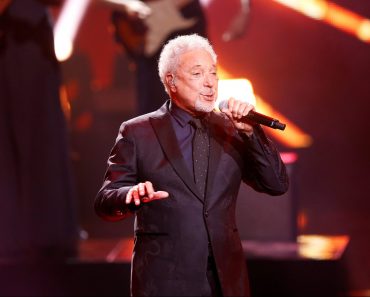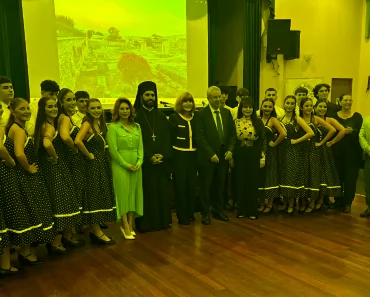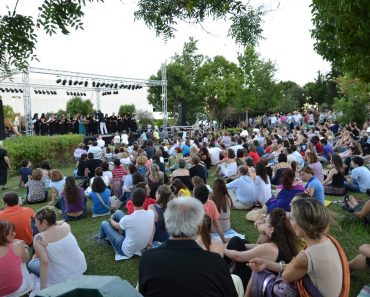With a budget of €40 million, 37 countries participating, and an estimated audience of 180 million viewers, the Eurovision Song Contest — now in its 69th year — is, on paper, a major televised event designed to bring people together through music. But in recent years, Eurovision has increasingly become a battleground of political tensions, raising the question: is it still uniting us, or driving us further apart?
2024: A win for Switzerland, a loss for Eurovision
For Switzerland, 2024 marked a return to Eurovision glory — 36 years after Céline Dion’s victory, Nemo brought the trophy home. But for the contest itself, the year was seen by many as a troubling low point.
Not because of any logistical disaster or technical mishap, but because the very foundation of the event — an apolitical celebration meant to unite post-war Europe — came under fire. Instead of music taking center stage, political messages dominated headlines.
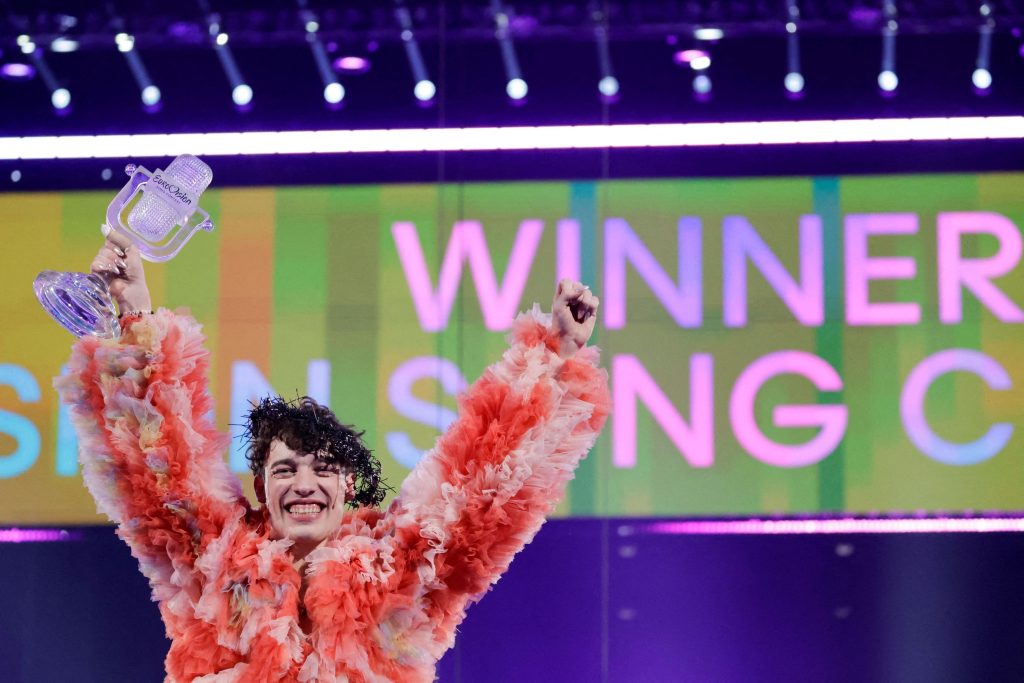
Nemo representing Switzerland holds the Eurovision sculpture after winning during the Grand Final of the 2024 Eurovision Song Contest, in Malmo, Sweden, May 11, 2024. REUTERS/Leonhard Foeger TPX IMAGES OF THE DAY
A slogan under pressure
Eurovision’s current slogan is “United by Music” — introduced officially in 2023. But with every passing year, the motto sounds more like wishful thinking than reality.
China has been banned from broadcasting Eurovision since 2018 due to censorship of LGBTQ+ symbols, while Turkey has voluntarily stayed out since 2013, condemning the event’s progressive leanings — particularly after Conchita Wurst’s 2014 victory, which was openly mocked by Turkish media.
Even Greece’s entry this year, Asteromata by Klavdia, came under (ultimately baseless) scrutiny for being allegedly “irredentist.”
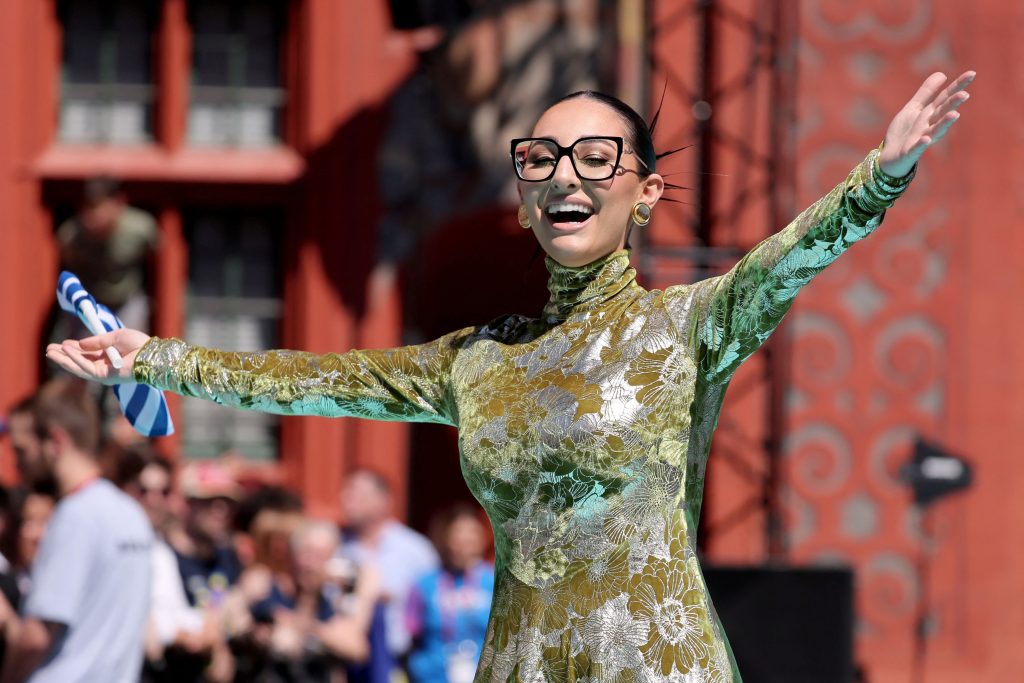
Klavdia, representing Greece, poses during the Eurovision Song Contest’s ‘Turquoise Carpet’ ceremony in Basel, Switzerland, May 11, 2025. REUTERS/Denis Balibouse
The Israel controversy and the Gaza war
The participation of Israel sparked the most heated reactions, coinciding with the country’s military actions in Gaza following the Hamas attacks of October 2023. While Greek singer Marina Satti’s widely discussed yawn during Israeli contestant Eden Golan’s press conference made headlines, the real issues ran deeper. Golan faced boos during her final performance at Malmö Arena — an audible sign of protest from part of the audience.
The European Broadcasting Union (EBU), which organizes Eurovision, had its hands full well before the contest even began. Israel’s original song title, October Rain, was deemed politically sensitive due to its perceived reference to the October 7 attacks. It was later renamed Hurricane under pressure.
Protests, boycotts, and a divided stage
The renaming didn’t quell the backlash. Hundreds of Swedish artists signed a petition urging their national broadcaster (SVT) to veto Israel’s participation. Pro-Palestinian organizations called for a boycott. Former Swedish Eurovision entrant Eric Saade, who appeared in the opening act of a semifinal, wore a Palestinian keffiyeh — provoking sharp criticism from the EBU.
Even Greta Thunberg joined thousands protesting on the streets of Malmö during the grand final, eventually getting arrested by Swedish authorities.
Despite the uproar, Eden Golan managed a 5th-place finish — though her time in Sweden was marked by strict police protection and intense security measures.
Israel’s choice for this year, Yuval Rafael, is also stirring debate. A survivor of the October 7 Nova Festival attack, she has turned to music as a way to cope with PTSD — and her participation alone is expected to reignite controversy. In an attempt to control future fallout, the EBU introduced two new, hotly debated rules.
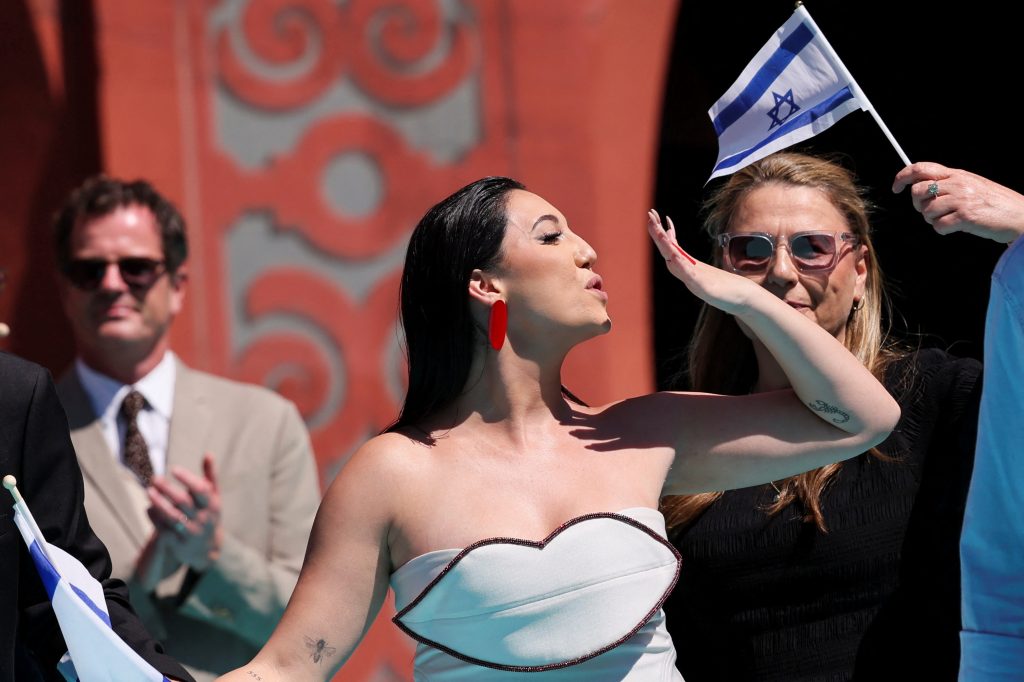
Yuval Raphael, representing Israel, gestures during the Eurovision Song Contest’s ‘Turquoise Carpet’ ceremony in Basel, Switzerland, May 11, 2025. REUTERS/Denis Balibouse
New rules, same problems
As of 2025, press conferences after each semifinal have been scrapped, and artists are banned from displaying any flags or symbols other than those of their respective countries onstage. Still, enforcement remains uncertain — especially in a contest known for pushing boundaries.
Seventy-two former Eurovision participants have already signed a letter demanding that Israel’s public broadcaster (KAN) be banned from this year’s event.
A shift back to national identity
Interestingly, even as Eurovision attempts to strip out politics, it’s moving in a direction that is arguably more nationalistic. This year, 24 out of the 37 countries are performing in their native languages — a stark contrast to the post-1999 era, when the EBU allowed English-only entries to help promote globalization.
Is this trend a passing phase, or a sign of Eurovision returning to its national roots?
When pop meets politics
History shows that Eurovision has often served as a stage for national identity and political messaging — sometimes subtle, often overt.
In 2016, Ukraine’s Jamala won with 1944, a song interpreted as a condemnation of Russia’s annexation of Crimea. The following year, Ukraine barred Russia’s contestant from entering the country due to her prior performance in occupied Crimea. Russia pulled out, and by 2022 — after invading Ukraine — was officially banned from the competition.
That year, Ukraine won again with Stefania by Kalush Orchestra. It’s widely believed that European voters used their ballots to send a strong message against Russian aggression.
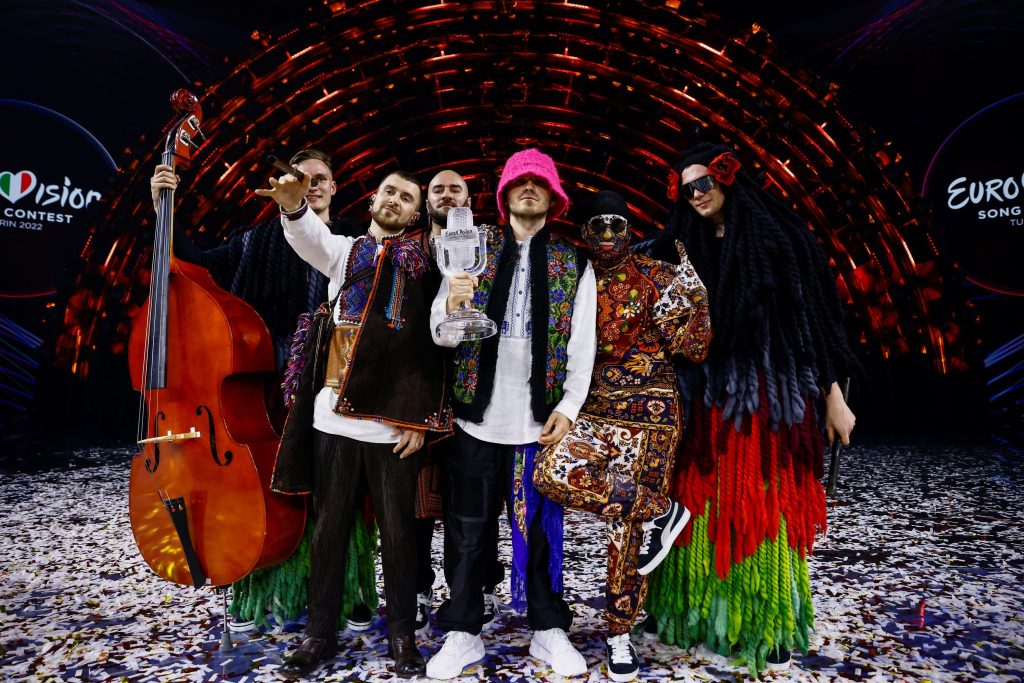
Kalush Orchestra from Ukraine pose after winning the 2022 Eurovision Song Contest in Turin, Italy, May 15, 2022. REUTERS/Yara Nardi
Other politically charged moments:
- 2009: Georgia’s entry We Don’t Wanna Put In was disqualified by the EBU for its perceived anti-Putin lyrics, shortly after the Georgia-Russia war.
- 2007: Ukraine’s act Verka Serduchka performed Dancing Lasha Tumbai, which some claimed sounded like “Russia Goodbye” — stoking Russian outrage. The artist has since openly changed the lyrics to reflect that interpretation.
- Armenia vs. Azerbaijan: Their long-standing conflict over Nagorno-Karabakh spilled into Eurovision too. In 2009, Azerbaijan allegedly interfered with Armenia’s broadcast, and in 2012, Armenia pulled out of the contest in Baku citing safety concerns.
- 2013: Azerbaijan faced accusations of vote-buying and result tampering, prompting stricter voting rules from the EBU.
Tel Aviv 2019: Symbolism on stage
The 2019 contest in Tel Aviv brought its own controversies. Icelandic group Hatari waved Palestinian flags during the live show. Madonna, a surprise guest, closed her performance with dancers bearing Israeli and Palestinian flags, ending with a giant “Wake Up” message on screen — a move that had not been approved beforehand.
After criticism, Madonna responded by stating that she would never allow her music to serve any political agenda — while also reaffirming her commitment to speaking out against human rights abuses.



